When russia started its full-scale genocidal aggression against the nation of Ukraine, there were some initial discussions about how the academic community should respond. Surely science is not political? Right? Everything else may be political, but scientists are a superior class of über-human intellectual elites, it would be wrong to ban russian science! And indeed, all scholarly publishers continue accepting papers from russia as if nothing at all happened.
As Alexander Magazinov (a russian in exile) will show you, the russian authors whom publishers like Elsevier and MDPI embrace, are often part of a Z-swastika-rascist mob, sometimes even actual officers of the mass-murdering, mass-raping and mass-torturing russian army. And no, dear editors, the argument of solid science regardless of who its authors are – this doesn’t apply to papermill trash.

Elsevier and MDPI: why not having business with Russian military?
By Alexander Magazinov
Meet this story’s main character, russian army’s Lieutenant Colonel Roman Fediuk, associate professor at the Far Eastern Federal University in Vladivostok and the Saint Petersburg Polytechnic University.
Googling his name, we learn a bit about him:
Born in 1981 in Vladivostok.
Archived source: famous-scientists.ru
Graduated from Far Eastern Polytechnic University in 2003.
After university, he served as an officer of Russian military, currently ranked as lieutenant colonel.
In 2010-2014 Fediuk was a Ph. D. student of Far Eastern Federal University.
Obtained a Ph. D. degree in construction sciences in 2016.
“Authored over 100 publications,” received various grants and awards.
A member of Russian Machine-Building Society and Russian Geographical Society.
In 2018, Fediuk was celebrated because he “became the winner of the XIII All-Russian competition “Engineer of the Year” for his work on “new composite materials for special structures for military and civil purposes“. We were also informed:
“Lieutenant Colonel Fediuk heads a research team at FEFU, which, on the instructions of the Engineering Troops of the Armed Forces of the Russian Federation , is developing high-strength materials for the construction of fortifications. The work is carried out in cooperation with the Belgorod State Technological University.”
In May 2022, it seems (see here) he got the second-level Russian academic degree, the so-called “doctor of sciences,” which is similar to German-style “Habilitation”, an academic degree one acquires after the PhD to qualify for appointment as full professor. Fediuk received this “D. Sc.” degree in an unanimous vote by a dissertation council in Belgorod. We’ll return here later.
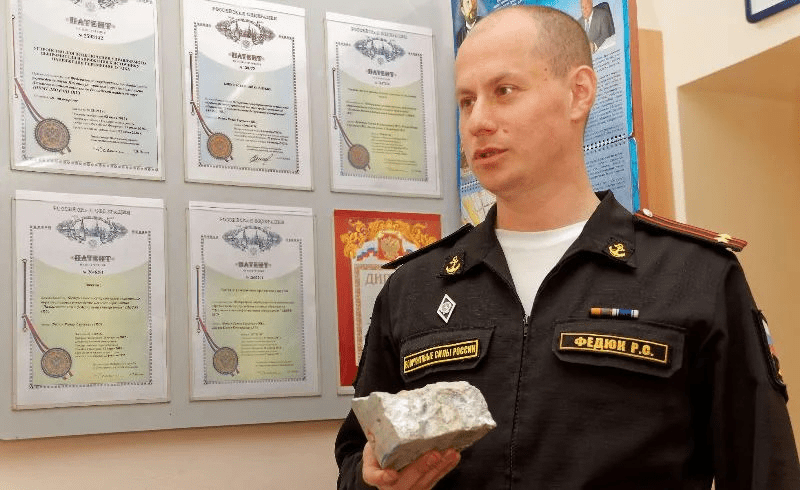
How have I ended up knowing about the existence of Fediuk? Well, with the help of “a certain YM Chu“!
Muhammad Rehan Hakro, Aneel Kumar , Zaheer Almani, Mujahid Ali, Roman Fediuk, Sergey Klyuev, Alexander Klyuev, Linar Sabitov, Dina Fathi, Compaction Characteristics and Permeability of Expansive Shale Stabilized with Locally Produced Waste Materials, Materials (2022), doi: 10.3390/ma15062138

An across-the-globe collaboration involving Pakistan, Malaysia, Russia and Egypt? This just screams: papermill. Of course, no eyebrow was raised – probably because that’s exactly how an MDPI submission should look like.
More garbage science and citation stacking:
Muhammad Rehan Hakro, Aneel Kumar , Zaheer Almani, Mujahid Ali, Fahid Aslam, Roman Fediuk, Sergey Klyuev, Alexander Klyuev, Linar Sabitov, Numerical Analysis of Piled-Raft Foundations on Multi-Layer Soil Considering Settlement and Swelling, Buildings (2022), doi: 10.3390/buildings12030356.
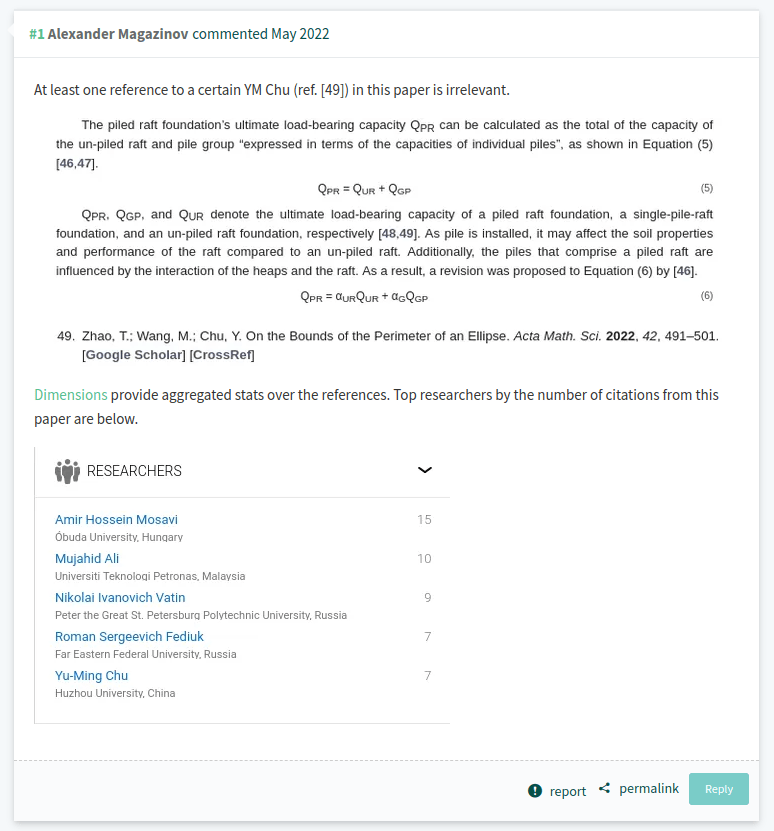
Since this is also in MDPI, everything is perfectly fine. Papermill shmapermill, important is that the authors paid. And here, despite a MDPI-esque journal name, is an Elsevier outlet:
Mujahid Ali, Muhammad Imran Khan, Faisal Masood, Badr T. Alsulami, Belgacem Bouallegue, Rab Nawaz, Roman Fediuk, Central composite design application in the optimization of the effect of waste foundry sand on concrete properties using RSM, Structures (2022), doi: 10.1016/j.istruc.2022.11.013.
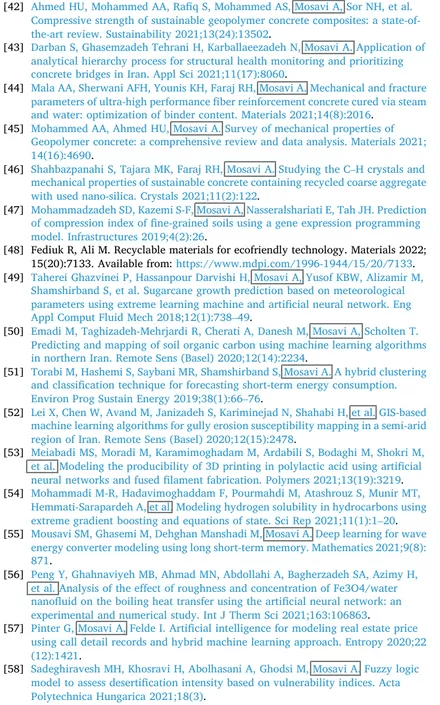
Why not. Elsevier is not MDPI, but also Amir Hosein Mosavi, Germany’s “Green Talent,” is apparently much more important than Yu-Ming Chu. Should we indeed expect much from Elsevier, when even PLoS is hesitant to deal with Mosavi’s garbage?
Citation games to the benefit of Chu and Mosavi strongly suggest a Persian trace. Maybe it is Iran where the secret of Fediuk’s productivity is hidden?
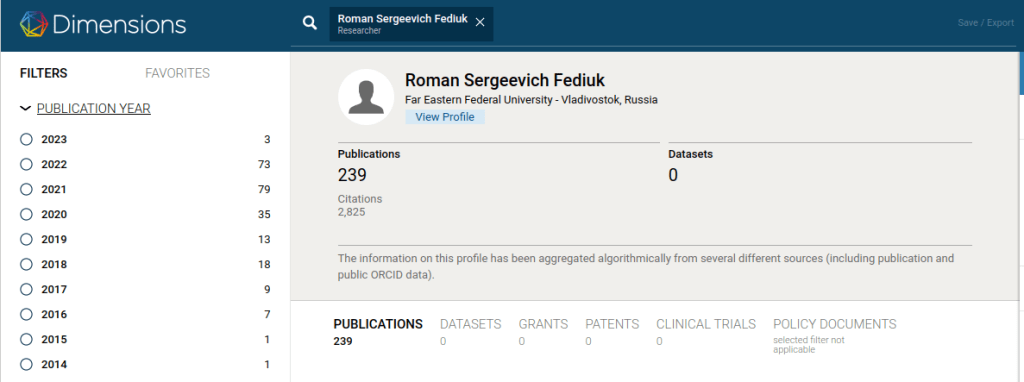
As if in confirmation of that theory, PubPeer offers a thread by Thallarcha lechrioleuca and Hoya camphorifolia with a fake XRD spectra, its patterns repetitive like a Persian rug.
Jawad Ahmad, Rebeca Martínez-García, Jesús De-Prado-Gil, Kashif Irshad, Mohammed A. El-Shorbagy, Roman Fediuk, Nikolai Ivanovich Vatin, Concrete with Partial Substitution of Waste Glass and Recycled Concrete Aggregate, Materials (2022), doi: 10.3390/ma15020430.

That other highlighted name, Nikolai Vatin – do keep it in mind. We will meet him again soon.
The Highly Cited Researchers of Clarivate
“here is my advice to Clarivate: better get lost. ” – Alexander Magazinov
Another Persian trademark feature: misreported microscopy equipment. We’ve seen that in the junk studies produced by “highly-cited researchers” Rafael Luque and Rajender S. Varma on one hand, and various no-names on the other.
Mugahed Amran, Roman Fediuk, Sergey Klyuev, Diyar N. Qader, Sustainable development of basalt fiber-reinforced high-strength eco-friendly concrete with a modified composite binder, Case Studies in Construction Materials (2022), doi: 10.1016/j.cscm.2022.e01550.
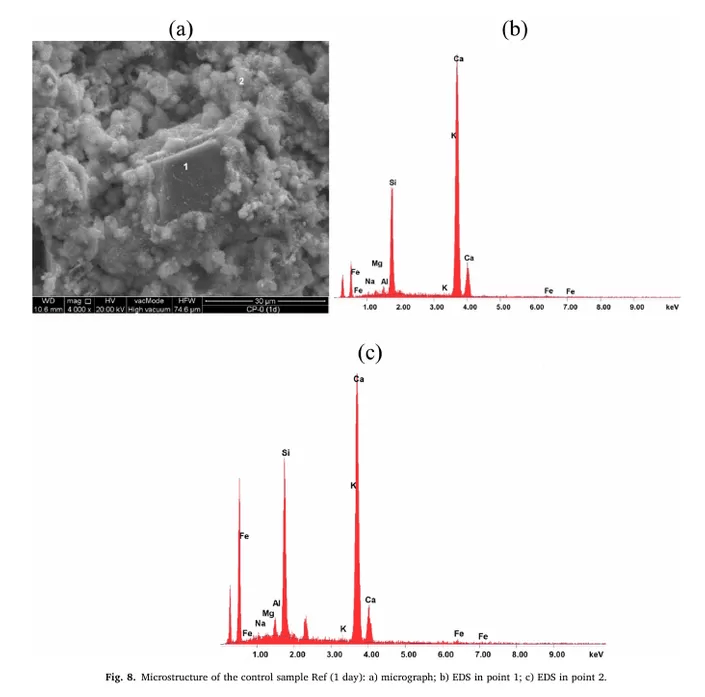
And this one might have a backstory.
Magomed Mintsaev, Sayd-Alvi Murtazaev, Madina Salamanova, Dena Bataev, Magomed Saidumov, Imran Murtazaev, Roman Fediuk, Structural Formation of Alkali-Activated Materials Based on Thermally Treated Marl and Na2SiO3, Materials (2022), doi: 10.3390/ma15196576.
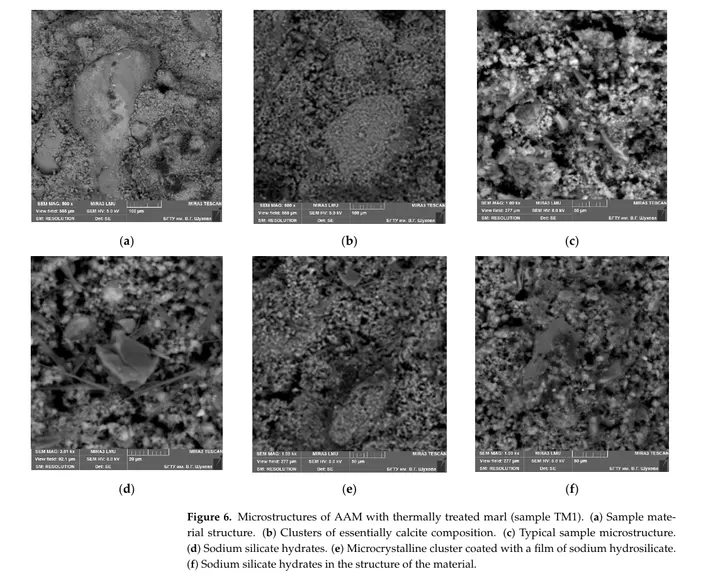
Now, a Chechen professor of the Grozny State Oil Technical University, Sayd-Alvi Yusupovich Murtazaev, and his England-educated son Imran, were Fediuk’s co-authors of the above trash paper. Just after Murtazaev senior acted as “opponent” at Fediuk’s “D. Sc.” defence in May 2022. Can we now exclude that the publication was a payment for his service?
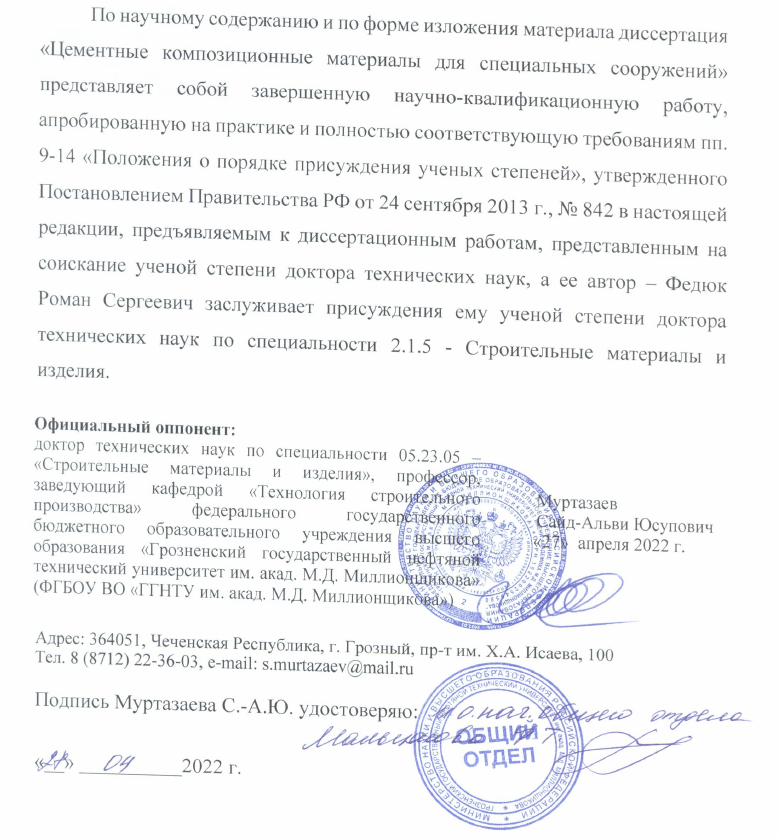
Oh, and by the way, this valuable MDPI author was in 2020 personally awarded by the Chechen dictator and russia’s chief rapist, torturer and mass murderer, Ramzan Kadyrov (рамзанка дыров):
“The honorary title “Honored Builder of the Chechen Republic” for many years of conscientious work and education of young specialists in the field of construction received Said-Alvi Murtazaev – Head of the Department of Technology of Construction Production, Vice-Rector for Strategic Development and Investment Activities, Doctor of Technical Sciences.”

But back to Lt Colonel Fediuk. If it’s MDPI, it’s always a “special issue”!
Special Issue
Archived source
“Recyclable Materials for Eco-Friendly Technology (Volume II)”
Special Issue Editors:
Prof. Dr. Roman Fediuk
Dr. Muhammad Imran Khan
Mujahid Ali
Of course, it’s a self-edited special issue, where all submissions are authored by the editors! However it is not a problem for MDPI: according to their “policy” designed to mimic impartiality, one just needs to assign an “independent” handling editor, who’ll rubberstamp the submission anyway. In the case of the Fediuk-Murtazaev’s paper, an Austrian postdoc named Florian Mittermayr from Graz was chosen to fulfill the editorial duties, so let’s congratulate him on approving a fake paper with gift authorship.
But with this “Volume II” one can hypothesize that “Volume I” also exists somewhere, right? Naturally, there it is!
Special Issue
Archived source
“Recyclable Materials for Ecofriendly Technology”
Special Issue Editors:
Prof. Dr. Roman Fediuk
Mujahid Ali
Out of the 42 accepted articles here, 25 are co-authored by Fediuk. Completely fine with MDPI, as long as the Open Access publication fees are paid. In passing, I’ll note another familiar name, a Portuguese zombie Jorge de Brito, here presenting a product of teamwork with world-leading experts from Jordan, Yemen, Malaysia and Brunei.
One more point. Let’s look at this paper:
Danish, Aamar, Mohammad Ali Mosaberpanah , Togay Ozbakkaloglu , Muhammad Usama Salim , Kiran Khurshid , Muhammed Bayram , Mugahed Amran , Roman Fediuk , Diyar N. Qader “A compendious review on the influence of e-waste aggregates on the properties of concrete.” Case Studies in Construction Materials (2022), doi: 10.1016/j.cscm.2022.e01740.
This being a review, I feel that an expert is needed to bring it to PubPeer, although even a cursory look might be sufficient to assess the quality of the cited sources.
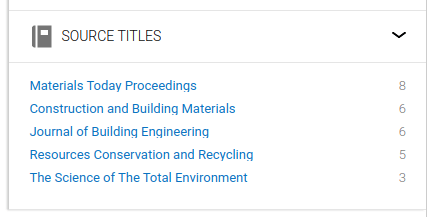
But the key point is different. Do Aamar Danish, Muhammed Bayram and their professor Togay Ozbakkaloglu from the Texas State University San Marcos, find it acceptable to continue collaboration with a Russian military serviceman long after Russia attacked Ukraine? If anything, the article was submitted on August 16, 2022. Does the US university approve of such a collaboration? Finally, how does it all look security-wise?
One reassuring thing is that e-waste, coconut shells and other trash by Feduik could just as well make it into Russian fortifications, amplified by ass-handedness of the local concrete-makers. Whatever makes the task of Ukrainian Armed Forces easier.
Boycott Russian Science (and Everything Else) – Thoughts on War in Ukraine
The state it’s in, we don’t need Russian science anyway.
Machine-gun Vatin
In a side line of our story, let’s have a look at Nikolai Vatin, a director of something at St. Petersburg Polytechnic University.

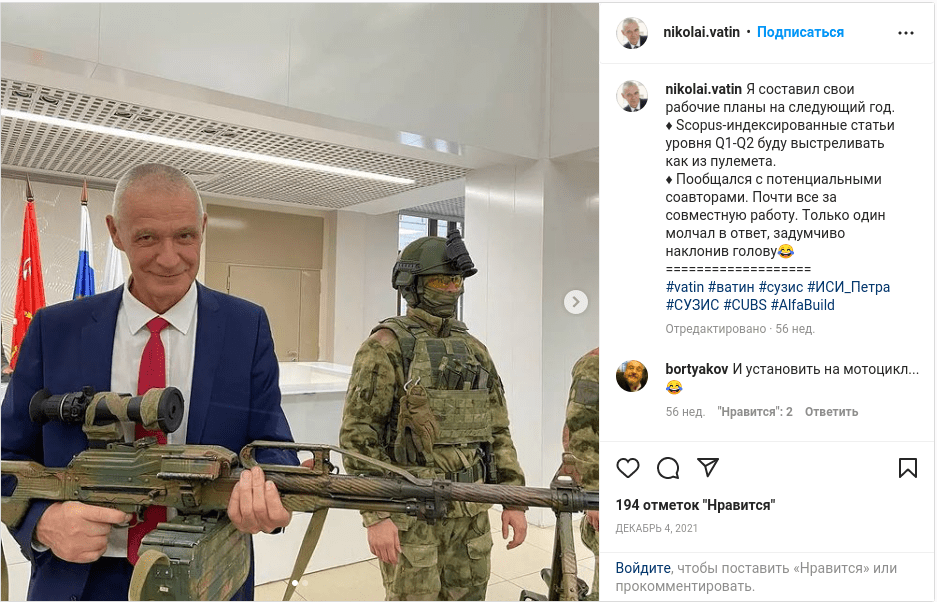
♦️ I will fire Scopus-indexed articles of level Q1-Q2 like from a machine gun.“
We have seen Vatin as a co-author of Fediuk, but he has his own record, too. Like this piece, yet another citation delivery vehicle to YM Chu:
Israr Ilyas, Adeel Zafar, Muhammad Talal Afzal, Muhammad Faisal Javed, Raid Alrowais, Fadi Althoey, Abdeliazim Mustafa Mohamed, Abdullah Mohamed, Nikolai Ivanovich Vatin, Advanced Machine Learning Modeling Approach for Prediction of Compressive Strength of FRP Confined Concrete Using Multiphysics Genetic Expression Programming, Polymers (2022), doi: 10.3390/polym14091789.
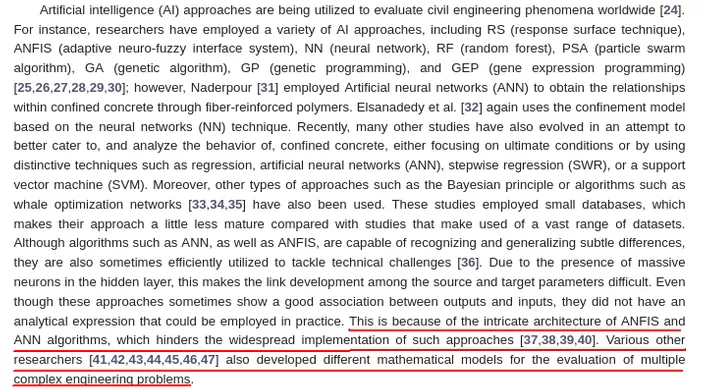
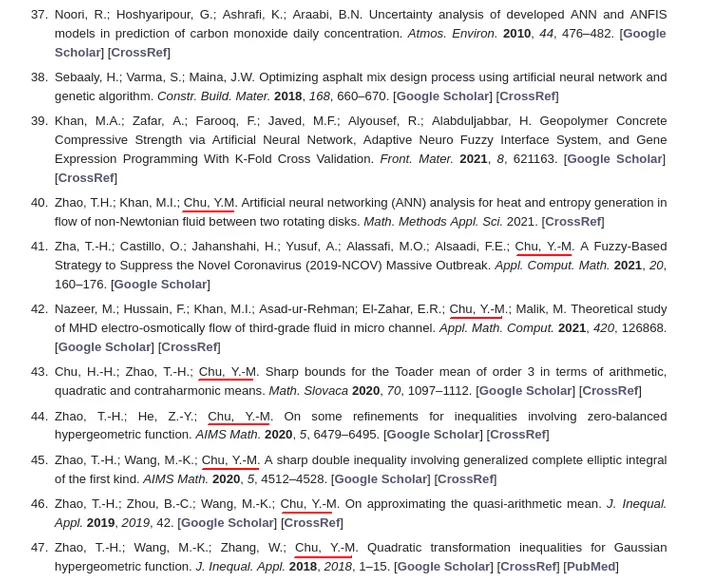
The next one is even more stupid, a collaboration with some Saurav Dixit, a member of Vatin’s research group at St. Petersburg Polytechnic University. Who didn’t miss an opportunity to insert exactly 20 self-citations right at the end of the reference list. In an Elsevier journal issued by some Egyptian university:
Khor Zheng Yang, A. Pramanik, A.K. Basak, Y. Dong, Chander Prakash, S. Shankar, Saurav Dixit, Kaushal Kumar, Nikolai Ivanovich Vatin, Application of coolants during tool-based machining – A review, Ain Shams Engineering Journal (2023), 10.1016/j.asej.2022.101830.
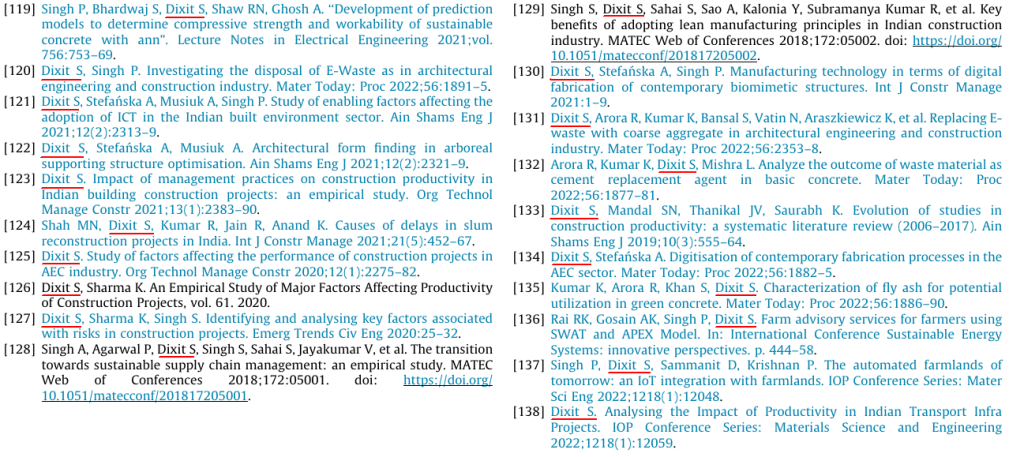
Here is the same indorussian scholar Dixit with a customary batch of self-citations. On top of those, we are also offered a crude fake nominally labelled as a pair of “XRD patterns.” Machine-gun Vatin is of course on board.
Kaushal Kumar, Saurav Dixit, Rishabh Arora, Nikolai Ivanovich Vatin, Jarnail Singh, Olga V. Soloveva Svetlana B. Ilyashenko, Vinod John, Dharam Buddhi, Comparative Analysis of Waste Materials for Their Potential Utilization in Green Concrete Applications, Materials (2022), doi: 10.3390/ma15124180
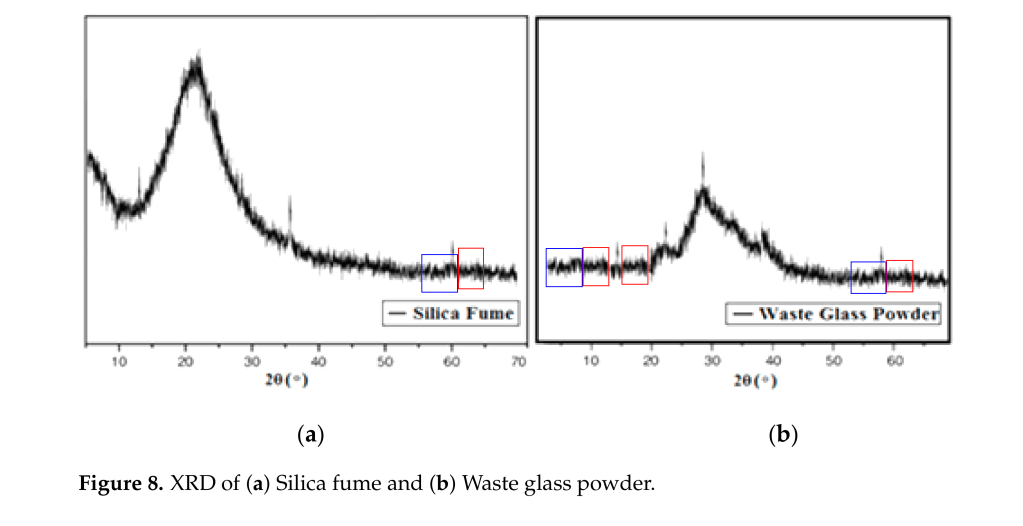

Why is this kind of Z-science welcomed by MDPI and Elsevier, and occasionally by other publishers? This was a rhetorical question, don’t answer.
Путін — хуйло!
PS
So far, only one (Elsevier) journal announced not to admit any papers from russia: Journal of Molecular Structure. The Editor-in-Chief Rui Fausto, professor at University of Coimbra in Portugal, explained the decision on Retraction Watch in March 2022:
“..it was decided by the editors of the journal to not consider manuscripts authored by scientists working at Russian Institutions, in result of the humanitarian implications emerging from the invasion of Ukraine by the Russian Federation. This position is temporary and shall apply until the refugees (whoever they are, Ukrainians, Russians, or of any other nationality) have conditions to return to their homes, their jobs, and join their families.“
A laudable move, it seems? Sure, it will keep out prolific russian papermill customers like Dmitry Bokov, associate professor at Sechenov First Moscow State Medical University. Read about him here:
The incredible collaborations of Renaissance men and women
Nick Wise and Alexander Magazinov on the authorships-for-sale market on social media. Merely $700 for the 7th position on some paper way outside your expertise!
Problem is, Journal of Molecular Structure is a garbage venue itself. Imagine, what a picture for russian propaganda it would be if OMICS or WSEAS were the first to ban russian scholars! But if these titans of predatory publishing don’t care, Journal of Molecular Structure is at least something. Judge by yourself: how about 30+ pieces of Coordination Polymer papermill found by Smut Clyde in this venue? After media attention to that mill the editors finally came up with retractions, like Ni et al 2021 and Wen et al 2021, with retraction notices saying:
“This article has been retracted at the request of the Editor-in-Chief.
In investigating concerns brought up regarding the authenticity of the article, the editors reached out to the corresponding author for an explanation and to request the original data. Per journal policy, the editors, at their discretion, may request deposition of any or all original data files for examination by the reviewers and/or editors. As a result of the author’s unsatisfactory explanation and failure to provide these data—in violation of journal policy—the editors feel that the findings of the manuscript cannot be relied upon.
The corresponding author does not agree to this retraction.”
Polymer Papermillers Taking the Piss
Papermill Industry enters its Logical Growth Phage. Smut Clyde explains what coordination polymer chemistry has to do with chickenshit.
But other forgeries are so far safe there, for example, Majumdar et al 2021 and Anooj et al 2021, caught on tortured phrases. There is this Jasim et al 2022 piece featuring (probably instead of banned Bokov) other regular authorship-for-sale customers – Maria Jade Catalan Opulencia and Khusnuddin Uktamov. Also from August 2022, there is Sargazi et al 2022 by the prolific papermill customers (employees? co-owners?) from Iran, Mahmood Barani, Saman Sargazi and Abbas Rahdar, with citations – you won’t believe it! – to Changhe Li. More familiar names? Here you go: meet the one-man papermill Ahmed Esmail Shalan, with Mousa et al 2022. These were published after the journal banned authors from russia.
The One-Man Papermill
“No, none of my data is forged.” – Ahmed Esmail Shalan
And there is much, much more: just check the table of contents, which could just as well be the table of contents in a book of Oriental fairy tales. Really, it is too difficult to rule out entirely pragmatic reasons behind Fausto’s ban: making space for more reliable customers.
PPS by LS: Fausto replied to me with a very long email, where he admitted that his journal has a papermill problem, and explained this with metrics, pressure to publish (in Asia only), Open Access (his own journal is behind paywall and subscription!), COVID-19, difficulties to find reviewers, etc. He said that “to avoid flawed manuscripts to pass the quality control is just an impossible mission” and “errors will always be around“. Fausto proposed solutions, like “Stop open access“, pay publishers even more for subscriptions (sic!), “Start to give real compensations (not vouchers to publish open access) to reviewers“, and ta-da, “Strongly increase the payments to editors of the journals“, i.e. himself. He ended with:
“MOLSTRUC has in fact retracted a series of (about) 20 papers recently (not 2), most of them from Chinese authors, following a tedious formal process that is required by the regulations. We are open to do the same whenever necessary, hopefully still having time to keep doing our job of processing, reviewing, and judging the new submitted manuscripts…“







There is a perennial appeal to the idea that we don’t need to pollute less or recycle more, because concrete production – environmentally sustainable and not at all carbon-intensive! – provides no end of green ‘structural landfills’ for disposing of e-waste or car tyres or whatever. It’s not just for disposing of bodies.
In the 1970s, I remember, UK apologists for coal power were all “Don’t think of fly ash as a toxic pollutant, think of it as an under-utilised but valuable concrete ingredient”.
LikeLike
Shalan and his gang are back, now solving the problem for Elon Musk with new battery ideas.
https://www.sciencedirect.com/science/article/abs/pii/S0378775322012332
LikeLiked by 1 person
https://wiki.dissernet.org/wsave/Magazine_of_Civil_Engineering_2019_7_1publ.html
An older piece, found by Dissernet. Fediuk is added as a guest author by scholars from Buryatia, who decided to republish their older piece in an English-language journal. As it sometimes happens, a predatory one.
LikeLike
I estimated that Alexander Magazinov owns at least 43 Pubpeer accounts. I identified this by following the patterns that he follows up comments on Pubpeer. Every time he want to frame someone, he uses one of his 43 Pubpeer accounts to seemingly make a independent comment, and later he thanks that account for pointing that to him. Alexander Magazinov says he lives in Kazakhstan and he is a software engineer. But government of Kazakhstan confirmed he has never ever entered the country. A third party made a court order in Kazakhstan for arresting Alexander Magazinov. But turned out he had never been in Kazakhstan. He is also not a software engineer. Alexander Magazinov just making a living by retracting certain people for cash. A new business model he invented.
LikeLike
Interesting theory. Could you point to one PubPeer post where this occurred?
LikeLike
Why don’t you go f*** yourself “Alex Jons”? Hiding your IP address also, so I will assume you are some rascist or Iranian scum. Banned from this site now.
Cheshire: this “Alex Jons” turd won’t be seen on FBS again.
LikeLike
I am intrigued. How does this business model actually work, and how can I get into it? Who is paying the cash for papers to be retracted?
Is there any evidence for this court order?
LikeLike
I banned “Alex Jons” before he arrives with a theory about an underground paedophile cannibal network sponsored by a Jewish cabal to finance Alexander Magazinov and myself.
LikeLike